A Consumer Guide to the Trailing Edge: June, 2012
Recycled Goods (#98)
by Tom Hull
For some reason, long since forgotten, about a month ago I thought I should use Rhapsody to listen to a batch of prime-period (1967-72) Aretha Franklin albums I had missed -- or more accurately, had only heard through compilations like the perfect Aretha's Gold or the more expansive 30 Greatest Hits. Actually, it was probably because I wrote about her second (or third) generation Arista best-of last month (Knew You Were Waiting: The Best of Aretha Franklin 1980-1998). Before that, I had only written up one Columbia-era compilation (the grade-B Jazz Moods: 'Round Midnight). Normal people don't need any more than I had before this exercise, but when so much more is available, why should I settle for normal?
I resisted expanding this to include the early Columbias, the later Atlantics, and the Aristas until nearly the end of May, then relented and plowed through. As a career summary, this misses such important albums as I Never Loved a Man (The Way I Love You) (1967), Spirit in the Dark (1970), Young, Gifted and Black (1972), Who's Zoomin' Who? (1985), and A Rose Is Still a Rose (1998) -- items I've long owned so could skip here, but see the fine print for an accounting, plus some comps. Still missed some, but only because Rhapsody did. (Also skipped a lot of comps that Rhapsody did have, although I finally worked in a reissue of her teen debut gospel album from 1956. I may check out some more later, but had to draw the line somewhere.)
Then on May 17, Donna Summer died. I cobbled together a quickie blog post, and resolved to look up what I had missed from her oeuvre. Not so much there, but I did manage to add a couple items to this file. I imagine I'll be doing more things like this in the future, but most likely not to completist. (I wrote up a Joe Cocker item a few months back, and have been kicking it down the road, this month because I'm never going to do all the Cocker I missed, although there may be a couple more albums I should take a listen to.) With the Briefly Noted so series-bound, I moved everything else up top, changing semicolons to periods and not bothering to tighten it all up.
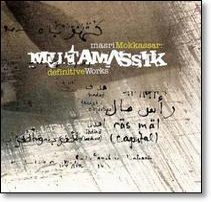 |
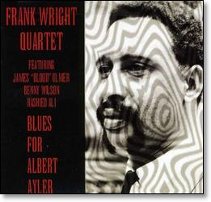 |
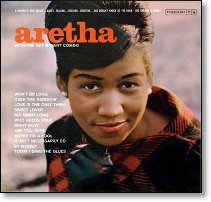 |
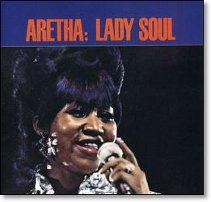 |
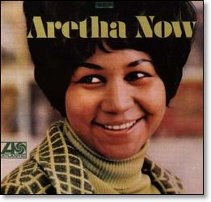 |
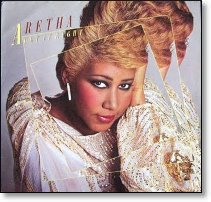 |
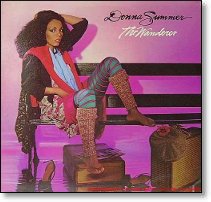 |
Steve Lacy: Estilhaços: Live in Lisbon (1972 [2012], Clean Feed): Still waiting for the avalanche of previously unissued recordings promised after the soprano sax legend's death in 2004, and eager to look at every piece that does appear to see how it fits into the puzzle. This one has been released before, first on LP in 1972, then on CD in 1996, both on obscure Portuguese labels. Lacy's quintet has rarely raised such a ruckus, and while much of it is hard to take, it does give you a sense of the thrill of freedom. I doubt that this had any role in triggering the revolution that freed Portugal two years later, but if Salazar had heard it I don't doubt that it would have scared the bejesus out of him -- in which case I'd have to grade it much higher. B+(*)
Frank Lowe: The Loweski (1973 [2012], ESP-Disk): A previously unreleased five-part jam recorded during the sessions that yielded the tenor saxophonist's debut, Black Beeings. Joseph Jarman's soprano and alto provide contrasting variations in scratch and screech, while Wizard Raymond Lee Cheng's violin opens up space and offers some relief. A young bassist in one of his first recordings, William Parker, goes both ways. B+(*)
Mutamassik: Masri Mokkassar: Definitive Works (1996-2003 [2005], Sound Ink): This is Italian-Egyptian-American turntablist Giulia Loli, who has popped up on records by Arto Lindsay and DJ/Rupture, sometimes going as DJ Mutamassik. Works more scattered than definitive, but the beats are of one piece, sometimes enhanced with Middle Eastern strings, less often voices ranging from prayer calls to radio patter to raps by 4th Pyramid and Cyra Unique, even a bit of George Lewis trombone. A-
Marzette Watts: Marzette Watts & Company (1966 [2012], ESP-Disk): Saxophonist, was a founder of SNCC but escaped Alabama for New York, then Denmark, leaving this and one other album (1968) before dying just shy of 60 in 1998. With Byard Lancaster (alto sax), Clifford Thornton (trombone), Sonny Sharrock (guitar), Karl Berger (vibes), Henry Grimes (bass), and J.C. Moses (drums), this should be a powerhouse, but comes off a bit underdefined, as if no one (but Berger) wants to take charge. B+(*)
Frank Wright Quartet: Blues for Albert Ayler (1974 [2012], ESP-Disk): Little recorded tenor saxophonist who died in 1990, his best known records two free improvs on ESP-Disk 1965-67 -- my interest in Wright was raised when Ken Vandermark dedicated a piece to him and followed that with a cover in Free Jazz Classics. This is dedicated to the late drummer Rashied Ali, but the real find here is some of James "Blood" Ulmer's earliest buzzsaw guitar work. Wright is also superb, a guy who could express a lot with few notes, an economy that may have suggested blues or Ayler but isn't bound to either. A-
Briefly Noted
Aretha Franklin: You Grow Closer [Peacock Gospel Classics] (1956 [2003], MCA): The fourteen-year-old preacher's kid showing off for the folks at her dad's New Bethel Baptist Church, originally on JVB and much purloined ever after (Rhapsody has three other versions, including Aretha Gospel on Chess); she plays piano and raises the rafters with grim songs -- two with "blood" in the title, one the choir-backed "He Will Wash You White as Snow"; primitive, amateurish, scary. B
Aretha Franklin: Aretha: With the Ray Bryant Combo (1960-61 [1961], Columbia): Aside from some gospel cut barely in her teens, her first album, still just 18 but in full voice and remarkably poised, standards and originals by arranger J. Leslie McFarland, with various backing, notably including Ray Bryant on piano, Al Sears on tenor sax and/or Quentin Jackson on trombone; Rhapsody has 2011 remasters and a mixed bag of bonus cuts but I haven't find a matching CD release. A- [R]
Aretha Franklin: The Electrifying Aretha Franklin (1962, Columbia): John Hammond and Richard Wess struggle to find arrangements that work, throwing together various mixes of strings, big bands, and small combos, and she struggles mightily to overcome them; one exception is the big band-propelled "Rough Lover." B+(**) [R]
Aretha Franklin: The Tender, the Moving, the Swinging Aretha Franklin (1962, Columbia): Robert Mersey's strings spoil nearly every arrangement, and even her magnificent voice sometimes serves her ill -- hope I never hear this "God Bless the Child" again; on the other hand, no fault of hers that she comes up short on "Try a Little Tenderness" -- Otis Redding's definitive take was still to come. B- [R]
Aretha Franklin: Laughing on the Outside (1963, Columbia): More strings, more standards, done at a crawl -- "Skylark," "Make Someone Happy," "Solitude," "Until the Real Thing Comes Around," "I Wanna Be Around"; she seems hopelessly trapped, but eventually you tune out the arrangements and take comfort in her suffering. B [R]
Aretha Franklin: Unforgettable: A Tribute to Dinah Washington (1964 [1995], Columbia/Legacy): Franklin could out-belt Ethel Merman, anyone really, so it's no surprise that she winds up murdering Dinah; the songbook breaks some ground for Franklin -- "Cold, Cold Heart," "Drinking Again," "Evil Gal Blues" -- but doesn't open her up, while Robert Mersey's strings are as anesthesizing as ever. B- [R]
Aretha Franklin: Runnin' Out of Fools (1964, Columbia): Ex-Mercury A&R director Clyde Otis takes the reins, finally giving up on shoehorning Franklin into the jazz tradition, turning her loose on contemporary pop covers -- "Mockingbird," "Walk On By," "My Girl," and "The Shoop Shoop Song" are amusing novelties, but she finds her calling on "You'll Lose a Good Thing"; question is: did anyone at Columbia notice? B+(**) [R]
Aretha Franklin: Yeah!!! (1965, Columbia): Subtitled In Person: With Her Quartet, notably guitarist Kenny Burrell, a live return to the standards repertoire -- "Misty," "Love for Sale," but also "If I Had a Hammer" and "There Is No Greater Love"; great voice, but little nuance -- she powers through everything, and the quartet gets little chance to jazz it up. B+(*) [R]
Aretha Franklin: Aretha Arrives (1967, Atlantic): Second album on Atlantic, cobbled together from outtakes and live shots and rushed out when I Never Loved a Man (The Way I Love You) struck it rich; one hit ("Baby I Love You"), a remarkable cover of "Nite Life" (at least until the live band hams it up), a furious live "Satisfaction" that was her only non-chart single in 1967-68, more obvious filler that she's better than. B+(***) [R]
Aretha Franklin: Lady Soul (1968, Atlantic): Third album on her Atlantic run, short (28:41) but packed with remarkable songs including her towering domination of "A Natural Woman"; two more top-10 hits, filler as sweet and slippery as "Groovin'" and as powerful as "Good to Me as I Am to You." A [R]
Aretha Franklin: Aretha Now (1968, Atlantic): As strong as she got, burning through ten songs, adding something to singers like Sam Cooke ("You Send Me") and especially Big Bill Broonzy ("Night Time Is the Right Time") -- a non-single because she works it hard for 4:50 where her hits ("Think," "See Saw") typically came in just over 2 minutes. A [R]
Aretha Franklin: Aretha in Paris (1968, Atlantic): Third album of the year, a greatest hits live set dumped out quick while she was hot; redundant and unnecessary, still hard to fault either the singer or the songs, especially on "Nite Life." B+(**) [R]
Aretha Franklin: This Girl's in Love With You (1970, Atlantic): She wrote one song, "Call Me," not nearly as good as the song Al Green would attach to that title; otherwise a hit-and-miss covers album, her gospelized Beatles pumping up "Let It Be" and salvaging more from "Eleanor Rigby" than Ray Charles managed; then there is "Sit Down and Cry," which does just that. B+(***) [R]
Aretha Franklin: Live at Fillmore West (1971 [1972], Atlantic): Original release, culled from three nights, runs 10 songs, 48:32, including two takes of "Spirit in the Dark" (the "reprise" with Ray Charles), a couple of her fast ones turned up a notch ("Respect," "Dr. Feelgood"), a few that make you scratch your head, or elsewhere ("Love the One You're With," "Bridge Over Troubled Water," "Eleanor Rigby"); it's mostly loud, but nothing Franklin can't sing over; also available in a much expanded 2-CD Deluxe Edition (2004), and a 4-CD stretched so thin they let King Curtis lead "Mr. Bojangles" (Don't Fight the Feeling: The Complete Aretha Franklin & King Curtis at Fillmore West) -- I figure the original is long enough. B+(*) [R]
Aretha Franklin: Oh Me Oh My: Aretha Live in Philly, 1972 (1972 [2007], Rhino Handmade): More impressive than the live albums Atlantic released: by this time, like Elvis, she's opening with "Also Sprach Zarathustra," before seguing into "This Girl's in Love With You"; she's compressing hits into medleys, manages to drench "Bridge Over Troubled Water" with so much soul I forgot what song it was, gives her piano a feature, and closes with a revivalist "Spirit in the Dark." B+(***) [R]
Aretha Franklin: Hey Now Hey (The Other Side of the Sky) (1973, Atlantic): Easy enough to blame this on Quincy Jones, who at the time probably still considered himself a jazz man, not that there has ever been any evidence that it did any good to nudge her toward jazz; a few songs she rescues from the production, and a few that get out of hand, with the gospel inflections as culpable as the jazz. B- [R]
Aretha Franklin: Let Me in Your Life (1974, Atlantic): Of this, Christgau wrote, "her great gift is her voice, but her genius is her bad taste." I noticed the bad taste, which she delivers with great power and poise, but I wouldn't call that genius. B [R]
Aretha Franklin: Sparkle (1976, Atlantic): Nominally a soundtrack, penned by Curtis Mayfield no less, the eight songs hold up well and aren't weighted down by the moods and motions that connect most soundtracks; some even sparkle, although with Franklin's voice you wouldn't expect so many backup singers -- I guess the films was about a Supremes-like group, but there's no mistaking the lead here. B+(*) [R]
Aretha Franklin: Aretha (1980, Arista): Sparkle was Franklin's only gold record between 1972 and 1982, and is her only Atlantic in print (or online) after 1974's Let Me Into Your Life, a decline too easily blamed on disco, but her label change in 1980 started a mini-comeback: this album peaked modestly at 47 -- better than any of the deleted Atlantics -- and the next few climbed to 36, 23, 36, and 13 with Who's Zoomin' Who? Producer Chuck Jackson manages to connect Aretha's classic soul with contemporary R&B, but it doesn't necessarily work; as a wise man once wondered, "can you imagine Doobie-in' your funk?" B [R]
Aretha Franklin: Love All the Hurt Away (1981, Arista): The title cut finally moderates her enough to ease into the flow of 1980s R&B -- it's a duet with George Benson, who absorbs enough neutrons to chill an atom bomb; a brassy cover ("Hold On! I'm Comin'") turns up the heat, the funk feels real, and she can turn a ballad when the time's right. B+(**) [R]
Aretha Franklin: Jump to It (1982, Arista): First gold record since Sparkle, produced and mostly written by Luther Vandross, who draws out a sweeter timbre in her voice by keeping her from oversinging -- suggests she may have a future as a soul professional, not as an indomitable force of nature. B+(**) [R]
Aretha Franklin: Get It Right (1983, Arista): Luther Vandross produces again, although note that his first four songs are co-credited to Marcus Miller, who jacks up the funk groove and adds fuzz to the bass, not that Vandross doesn't do his damnedest to keep it in check; Franklin goes with the flow, adding just enough to every song -- even though only "I Wish It Would Rain" has much to it. A- [R]
Aretha Franklin: Aretha (1986, Arista): Third album with this title, second in six years with Arista, bidding for a first-name-only status that causes me agita every time I jot down "Franklin"; her best album since 1972 was Who's Zoomin' Who?, produced by Narada Michael Walden, back this time but less resourceful. B [R]
Aretha Franklin: One Lord, One Faith, One Baptism (1987, Arista, 2CD): Back to church, live, with more than a little preaching -- including prayer invocation and/or intros by Revs. Cecil Franklin, Jaspar Williams, Donald Parsons, and Jesse Jackson, plus guests like Mavis Staples and Joe Ligon; this runs on and on, and I don't have much patience for the fury unleashed, but it's often remarkable, as much in the cadence of the sermons as in song; looks like there is also a budget 1-CD version, but I haven't seen the cuts. B+(*) [R]
Aretha Franklin: What You See Is What You Sweat (1991, Arista): Opens with "Everyday People" and closes with a "singles remix" of same, a framework that would be perfunctory for a lesser artist; in between she goes through the motions without breaking a sweat. B [R]
Aretha Franklin: So Damn Happy (2003, Arista): Only her second album in more than a decade: 1998's A Rose Is Still a Rose missed this rundown because I bought it when it was new, but it established a new standard for how she would cope with the evolved nu soul universe; this follows up in the same mode, her once domineering voice now reduced to the first among equals, equally able to blend in and to raise highlights. B+(**) [R]
Donna Summer: The Wanderer (1980, Geffen): Wandering into rock, not that she hadn't broken that ground with Bad Girls, and off to a new label which hasn't had the good sense to keep one of her better records in print -- no big hits, I suppose, but they'd get in the way of the organic flow, which downshifts at the end with a Jesus song that will disappoint no one. A- [dl]
Donna Summer: Crayons (2008, Burgundy): The disco diva's only album since 1999, a major production and something of a hit (peaked at #17 on the album chart); she had a hand writing all of the pieces, got a lot of help with the production, and sang as hard as ever; the singles material is mixed up front, but the tail end drags, or grinds on the fast ones. B [R]
Legend: B+ records are divided into three levels, where more * is better. [R] indicates record was reviewed using a stream from Rhapsody ([X] is some other identified stream source; otherwise assume a CD). The biggest caveat there is that the packaging and documentation hasn't been inspected or considered, and documentation is especially important for reissues. But also my exposure to streamed records is briefer and more limited, so I'm more prone to snap judgments -- although that's always a risk.
For this column and the previous 97, see the archive. Total records reviewed: 3287 (2889 + 398).
Additional Consumer News
Previously rated by artists featured above: Summer is more complete because I previously reviewed her for The New Rolling Stone Album Guide, whereas I had only cherry-picked Franklin's best-regarded discs.
- Aretha Franklin: I Never Loved a Man (The Way I Love You) (1967, Atlantic) A
- Aretha Franklin: Soul '69 (1969, Atlantic) A-
- Aretha Franklin: Spirit in the Dark (1970, Atlantic) A-
- Aretha Franklin: Young, Gifted and Black (1971, Atlantic) A-
- Aretha Franklin: Who's Zoomin' Who? (1985, Arista) A
- Aretha Franklin: A Rose Is Still a Rose (1998, Arista) A-
- Donna Summer: Love to Love You Baby (1975, Casablanca) B
- Donna Summer: A Love Trilogy (1976, Casablanca) B
- Donna Summer: Four Seasons of Love (1976, Casablanca) B+
- Donna Summer: I Remember Yesterday (1977, Casablanca) B+
- Donna Summer: Once Upon a Time . . . (1977, Casablanca) B+
- Donna Summer: Live and More (1978, Casablanca) B+
- Donna Summer: Bad Girls (1979, Casablanca) A-
- Donna Summer: She Works Hard for the Money (1983, Mercury) A-
- Donna Summer: Cats Without Claws (1984, Warner Bros.) B-
- Donna Summer: Another Place and Time (1989, Atlantic) B
- Donna Summer: VH-1 Presents: Live and More Encore! (1999, Epic) C+
Still missing:
- Aretha Franklin: Songs of Faith (1956, JVB)
- Aretha Franklin: Soul Sister (1966, Columbia)
- Aretha Franklin: With Everything I Feel in Me (1974, Atlantic)
- Aretha Franklin: You (1975, Atlantic)
- Aretha Franklin: Sweet Passion (1977, Atlantic)
- Aretha Franklin: Almighty Fire (1978, Atlantic)
- Aretha Franklin: La Diva (1979, Atlantic)
- Aretha Franklin: Through the Storm (1989, Arista)
- Aretha Franklin: This Christmas, Aretha (2008, DMI)
- Aretha Franklin: A Woman Falling Out of Love (2011, Aretha)
- Donna Summer: Lady of the Night (1974, Groovy)
- Donna Summer: I'm a Rainbow (1981 [1996], Mercury)
- Donna Summer: All Systems Go (1987, Geffen)
- Donna Summer: Mistaken Identity (1991, Atlantic)
- Donna Summer: Christmas Spirit (1994, Mercury)
Both Franklin and Summer have a lot of compilations, as redundant as usual, so I ignored them above. But I have sampled and rated a few, so might as well report them here:
- Aretha Franklin: Aretha's Gold (1967-68 [1969], Atlantic) A+
- Aretha Franklin: Jazz Moods: 'Round Midnight (1961-69 [2005], Columbia/Legacy) B
- Aretha Franklin: The Very Best of Aretha Franklin: The '60s (1967-70 [1994], Rhino) A
- Aretha Franklin: 30 Greatest Hits (1967-73 [1985], Atlantic, 2CD) A
- Aretha Franklin: The Very Best of Aretha Franklin: The '70s (1970-76 [1994], Rhino) A-
- Aretha Franklin: Greatest Hits (1980-94 [1994], Arista) A-
- Aretha Franklin: Knew You Were Waiting: The Best of Aretha Franklin 1980-1998 (1980-98 [2012], Arista/Legacy) A-
- Donna Summer: On the Radio: Greatest Hits (1975-79 [1979], Casablanca) A-
- Donna Summer: The Dance Collection: A Compilation of Twelve Inch Singles (1977-79 [1987], Casablanca) B+
- Donna Summer: Bad Girls [Deluxe Edition] (1977-80 [2003], Mercury/Chronicles, 2CD) A
- Donna Summer: The Best of Donna Summer [20th Century Masters: The Millennium Collection] (1975-83 [2003], Mercury) A-
- Donna Summer: The Donna Summer Anthology (1975-92 [1993], Casablanca, 2CD) A-
- Donna Summer: Endless Summer: Donna Summer's Greatest Hits (1975-95 [1995], Casablanca) A-
- Donna Summer: The Journey: The Very Best of Donna Summer (1975-2003 [2003], UTV/Mercury, 2CD) A-
The Summer sets are very redundant, the later ones adding only a few more cuts to the usual ones from the Casablanca period. The extra disc on the Deluxe Ed. of Bad Girls turns out to be the best programmed one of the bunch, what The Dance Collection should have been.
The Franklin comps tend to split out by label: the Atlantics are similarly redundant, with none topping the initial, perfect Aretha's Gold, underscoring the rule that the earlier the better. Arista has a tougher time: even though there is superb material scattered about, it doesn't necessarily assemble into a coherent hole. There are lots of Columbia comps, the first trying to cash in on her hit period with Atlantic (Take a Look and Aretha Franklin's Greatest Hits in 1967, Soft and Beautiful in 1969, In the Beginning in 1972) and on and on (Aretha After Hours in 1976, Aretha Sings the Blues in 1980, The Legendary Queen of Soul in 1981, Jazz to Soul in 1992, Queen in Waiting in 2002). In 2011 they released Take a Look: Aretha Franklin Complete on Columbia and carved that carcass up several ways, including the online-only versions of the original albums above.
I may look at some of these compilations later if/when I get the chance.
Copyright © 2012 Tom Hull.